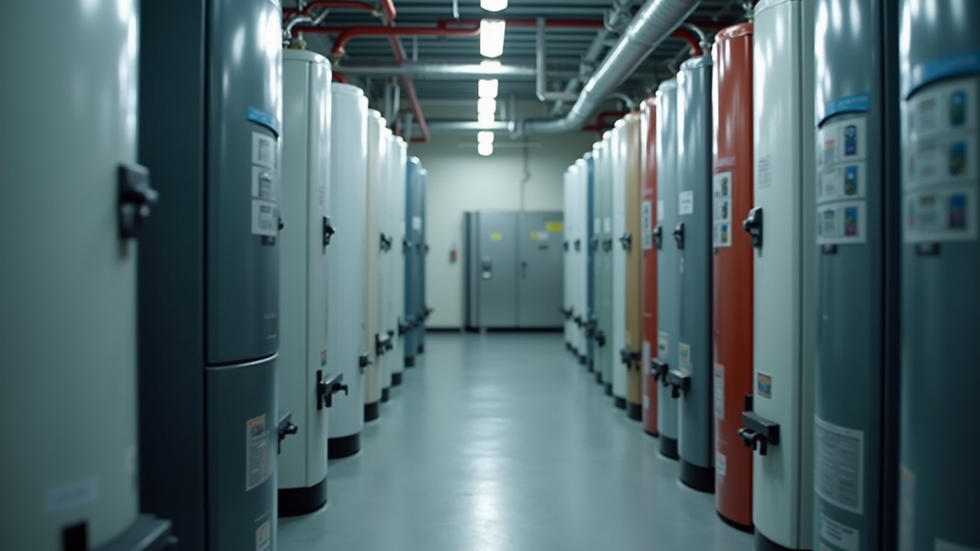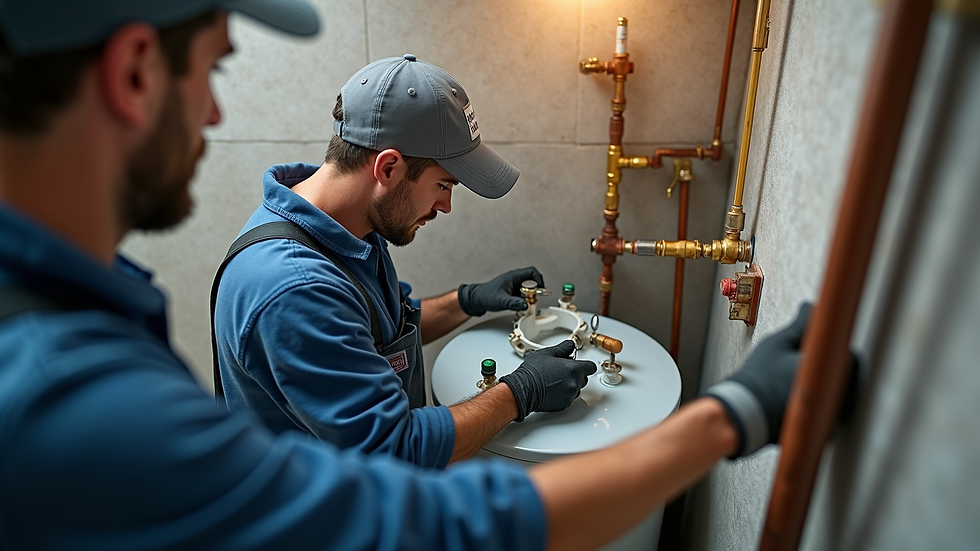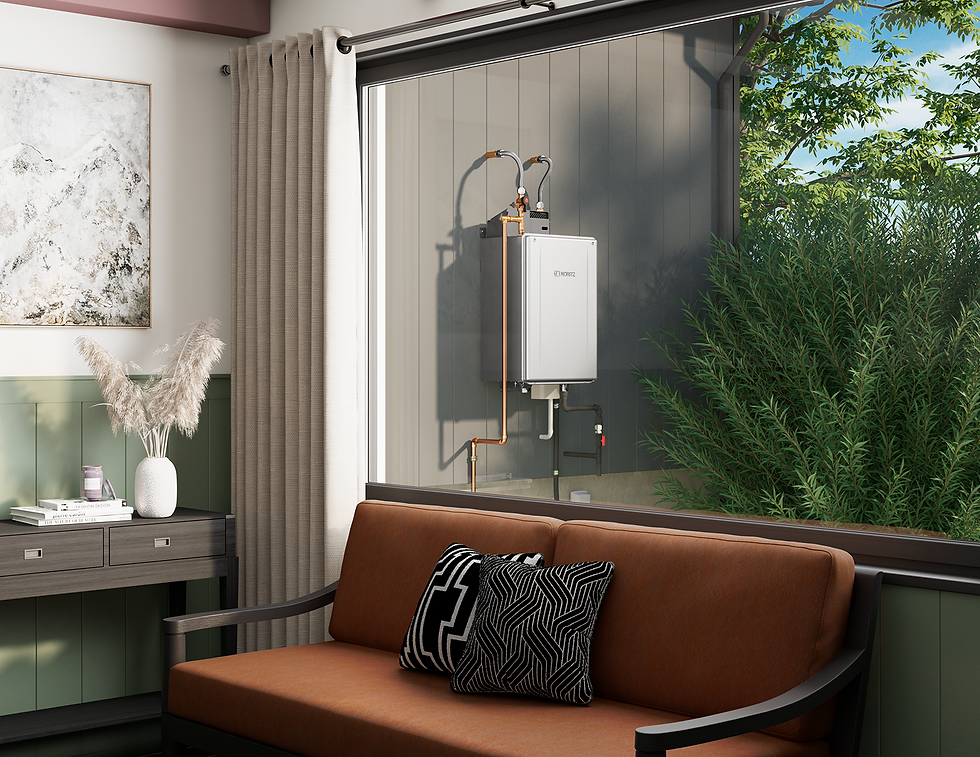Save Money on Your Water Heater Installation Costs
- Manny Garcia
- Aug 15, 2025
- 4 min read
Installing a new water heater can be a significant investment for homeowners. Whether you are constructing a new home or replacing an old heater, understanding the costs involved and the options available can help you save money. In this blog post, we will provide you with a comprehensive guide on how to minimize your water heater installation costs while ensuring you get a reliable and efficient unit.
Understanding Water Heater Pricing Guide
Before diving into the installation costs, it is essential to know the types of water heaters available and their respective price ranges. Based on energy source, water heaters can be categorized into:
Gas Water Heaters: Generally cost between $300 to $1,200. They are popular for their efficiency and faster heating capabilities.
Electric Water Heaters: Typically priced from $250 to $1,300. While often cheaper to purchase, they can be costlier to operate as electricity is usually more expensive than gas.
Tankless Water Heaters: Ranging from $500 to $3,000. These offer hot water on demand, leading to energy savings in the long run but have higher upfront costs.

Knowing your options allows you to assess not only their costs but also their benefits and downsides. Considering your household's hot water usage will aid in making an informed choice.
Key Factors Affecting Installation Costs
Several factors can impact the total price you will pay for water heater installation. Understanding these can help you budget more accurately:
Type of Heater: As we’ve mentioned, the heater type plays a significant role in the price. Gas models are typically pricier upfront compared to electric ones.
Labor Costs: Depending on your location and the complexity of the job, labor costs can vary widely. Always ask for a breakdown of costs from your contractor.
Existing Plumbing Setup: If your current plumbing is outdated or incompatible with the new water heater, you may incur additional costs for retrofitting or repairs.
Permits and Regulations: Some regions require permits for water heater installation. Ensure you check local regulations beforehand to avoid surprise fees.
Energy Efficiency: Opting for an energy-efficient model may have a higher initial price, but it saves you on utility bills in the long run.
Taking these factors into consideration can help you narrow down choices and manage your budget effectively.
How Much is Labor to Install a New Hot Water Heater?
Labor is one of the most significant components of your overall installation cost. On average, you might pay anywhere from $150 to $500 for labor.
Regional Variations: Prices can differ greatly depending on the cost of living in your area. Urban areas often have higher labor costs, while rural locations may be less expensive.
Complexity of Installation: If gas lines need to be laid or if you're installing a tankless unit which requires additional venting, expect labor costs to rise.
Contractor Rates: Research and compare rates from different contractors. An experienced plumber may be pricier but could save you headaches down the line with quality work.

Labor is an expense you cannot overlook when budgeting for your new unit. It is wise to seek multiple quotes from licensed contractors prior to making your decision.
Tips for Reducing Water Heater Installation Costs
There are several ways to save money on your water heater installation while ensuring a quality setup.
1. Get Multiple Estimates
Always obtain at least three quotes before selecting a contractor. This method allows you to compare prices and listen to different recommendations.
2. Opt for Off-Peak Installation
Schedule your installation during off-peak hours. Contractors may offer discounted rates for work performed during less busy times.
3. Buy Your Own Water Heater
Often, contractors mark up the price of heaters. Research and purchase the unit yourself for potential savings. Just ensure it's compatible with your plumbing needs.
4. Take Advantage of Promotions
Many retailers offer sales during holiday seasons or provide rebates for high-efficiency units. Keep an eye out for these promotions to save on upfront costs.
5. Consider DIY for Simple Jobs
Installing an electric water heater can be a DIY project if you have adequate plumbing and electrical skills. However, this isn't recommended for gas water heaters due to safety concerns.
Implementing these strategies can contribute to a more manageable installation cost.
Additional Costs to Keep in Mind
Beyond the initial installation expenses, other costs associated with water heater placement can arise. These may include:
Maintenance Fees: Regular maintenance is essential for longevity. Budget around $100 per year for upkeep.
Replacement Parts: If your unit malfunctions, the cost of repairs can add up. Quality water heaters can require fewer repairs.
Utility Fees: Be mindful of ongoing utility costs, as heating water can significantly impact your monthly bills.
By understanding the full spectrum of costs associated with water heaters, you can plan effectively.
Making the Right Choice: Long-term Savings vs. Initial Investment
While your primary focus might be on saving during installation, consider the long-term benefits of investing in more efficient units. Higher initial costs for Energy Star-rated models or tankless systems can result in lower energy bills and prolonged life expectancy.
Ultimately, ensuring you understand the overall value of your purchase can yield significant savings.
In summary, to cut down on your water heater installation costs, take the time to research options, obtain estimates, and consider efficiency in your selection process. Always keep in mind that the cheapest option is not always the best in the long run.

Making informed decisions will help you stay within your budget, while providing your home with reliable hot water solutions. Happy plumbing!




Comments